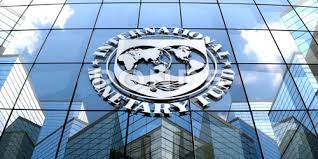The International Monetary Fund (IMF) has urged Pakistan to end subsidies for the upper class and increase tax collection from high earners. According to IMF Managing Director, Pakistan does not require debt restructuring, but relatively strong measures to ensure the country’s stability. The western economist suggested a two-point strategy for the Pakistani government which includes an increase in tax revenue both from the private and public sectors along with the provision of targeted subsidies only to vulnerable sections of the society while removing the privileged communities from the scheme.
Pakistan is passing through a crucial period in its history, and the weak economy has been diagnosed as the most urgent and challenging problem for the nation’s survival. Recently, an IMF delegation visited Islamabad and held week-long talks with Pakistani authorities regarding economic management and revenue generation to steer the country out of the current financial crisis. The global lender handed over a long list of economic reforms and fiscal measures to generate revenue and pressed the government to shortcut its non-development expenditures, put a curb on subsidies in the energy sector, and reduce defense expenses to manage its costs within the attire.
Unfortunately, Pakistan has always faced a lack of resources because of a thin tax base, irrational tax policies, a persistent deficit in tax collection, corruption of tax officials, and a bulk of tax litigations pending court decisions that not only undermined tax collection efforts but provided a free heaven to tax evaders for an unspecified period. At the same time, limitless incentives and gigantic payment and allowances for serving and retired civil and military bureaucrats and public office holders, free air travel vouchers, free electricity units, free of cost petrol, and unlimited road mileage are those real transgressions that sunk the ship of already dwindling economy of the poor nation. Historically, Pakistan’s tax system remained unjudicial and biased because of underutilization of the direct tax regime which facilitated tax evasion of the powerful elite class, business giants, real estate tycoons, and landlords while more than 60% of tax is being collected through indirect taxation, including GST, Petroleum levy and surcharges on utilities.
Presently, the IMF Managing Director has suggested the government rationalize its subsidy by allowing only vulnerable segments of society while the wealthier people must contribute to the economy as per the law. She also urged the government to expand its tax base through direct taxation on the privileged class and take the necessary steps to function as a stable country without reaching a point where it needs additional financing.
In fact, Pakistan fell prey to the duplicity of its administrators who always conceive discriminatory mechanics and safeguard the monetary interests of their clan, while completely ignoring the national cause, public suffering, and long-term devastations of their bigotry. The international community, global lenders, and friendly nations only offer us sane advice, after all, Pakistanis, themselves have to rescue their country from the current upheaval. No nation can prosper on foreign aid, grants, and loans thus strict fiscal management and stern accountability of public officeholders are mandatory for economic revival. As early as Pakistani leaders grasp this fact and start abandoning the policy of favoritism and bias, the nation will start rising to the sky otherwise our future will remain uncertain forever.







